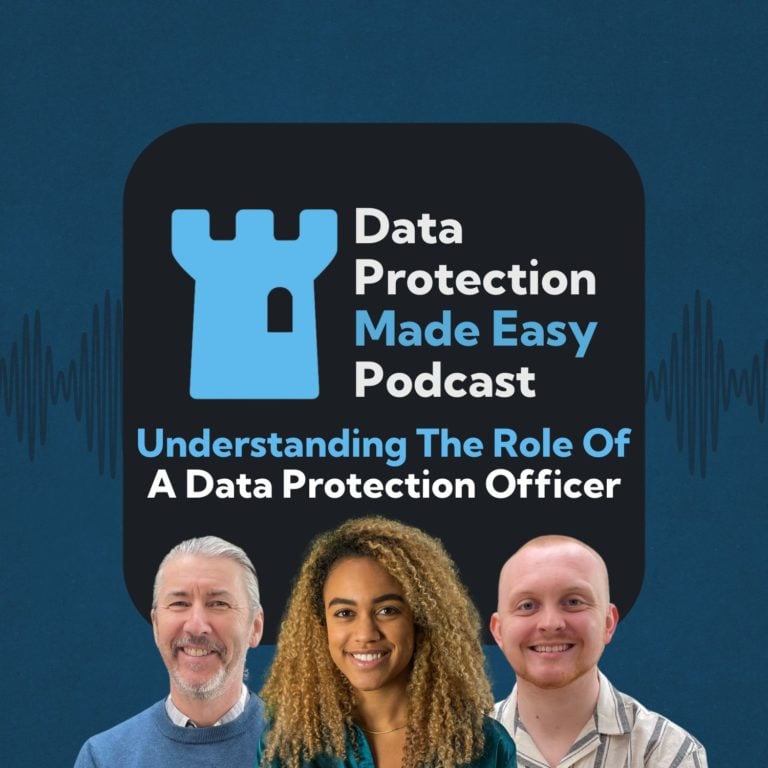The Role of a DPO: A Deep Dive
Joe Kirk, Jasmine Harrison and Philip Brining
Join us as we dive deep into the world of the Data Protection Officer (DPO). In this episode, we explore the essential tasks of a DPO, the potential conflicts of interest that can arise, and how organisations can ensure that their DPOs are operating independently and effectively. Discover the crucial role the DPO plays in protecting privacy and compliance in today’s complex digital landscape.

Podcast: The Role of a DPO: A Deep Dive
In this episode, we delve into the crucial role of the Data Protection Officer (DPO) in the UK. We discuss the specific responsibilities outlined in the UK GDPR, the potential conflicts of interest that can arise, and how organisations can ensure that their DPOs are operating independently and effectively.
The Essential Tasks of a DPO
The UK GDPR mandates that certain organisations appoint a DPO to oversee data protection compliance. Key responsibilities of a DPO include:
- Informing and advising the organisation on data protection obligations
- Monitoring compliance with data protection laws and internal policies
- Providing advice on Data Protection Impact Assessments (DPIAs)
- Acting as the primary contact point for the Information Commissioner’s Office (ICO)
- Handling data subject requests
- Assisting in data breach response and reporting
- Providing data protection training for staff
Avoiding Conflicts of Interest
A DPO must operate independently to effectively fulfil their role. Conflicts of interest can arise when the DPO‘s other responsibilities within the organisation could influence their judgment or decision-making regarding data protection. Common roles that may present conflicts include:
- Finance: A focus on cost minimisation might lead to compromises in data protection measures.
- Human Resources: Managing sensitive employee data can create challenges in maintaining objectivity.
- Information Technology: Overlap in responsibilities can impact the DPO’s ability to ensure data protection compliance.
- Sales and Marketing: Prioritising revenue generation might lead to shortcuts in data handling practices.
- Directors/Chief Officers: Strategic focus on business operations can overshadow data protection priorities.
How to Ensure a DPO’s Independence
To prevent conflicts of interest, organisations should:
- Clearly define the DPO’s role, responsibilities, and reporting lines.
- Establish robust governance structures, such as a data protection committee.
- Regularly assess potential conflicts and implement mitigation strategies.
- Consider outsourcing the DPO role to a third party.
Conclusion
The role of the DPO is essential in ensuring compliance with data protection laws and protecting individuals’ privacy rights. By understanding the DPO’s responsibilities and avoiding potential conflicts of interest, organisations can effectively safeguard their data and mitigate risks.
Additional Resources
